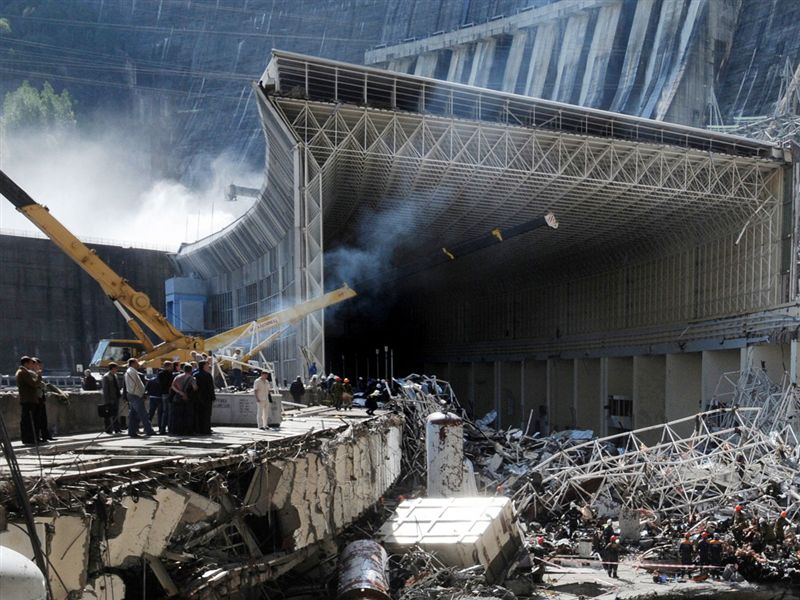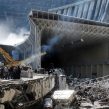
Russia: Stuck in a Year of Events and Little Change
Publication: Eurasia Daily Monitor Volume: 7 Issue: 1
By:

Last year was for Russia both extraordinarily hard and very unlucky –but it saw strikingly little economic reforms and practically no political development. Opinion polls show that a significant majority of Russians (62 percent) consider it as worse than 2008, when the arrival of the economic crisis coincided with the war with Georgia, but the approval ratings of President Dmitry Medvedev and Prime Minister Vladimir Putin remain steadily above 70 percent (www.levada.ru, December 24). The sudden death of Yegor Gaidar, the leader of the team of “young reformers” in the early 1990’s, showed how small the present-day camp of liberal “Westernizers” has become and the depth of the legacy of Stalinism –inherently hostile to the concepts of democratic freedoms and human rights (www.gazeta.ru, December 16; Ezhednevny Zhurnal, December 28).
In the first half of 2009, it was the breathtaking economic decline that dominated Russian experience, destroying hopes for a swift recovery from a short crisis and determining the yet to be finalized figure of 8.5-9 percent GDP contraction (Nezavisimaya Gazeta, December 29). The “active” phase of the crisis lasted a full four quarters from mid-2008 to mid-2009 and was followed by a feeble recovery that is set to continue into 2010, so that the official forecast of 3 percent GDP growth appears grossly exaggerated. The obvious risk is that any slide in the world oil price from the current plateau of $70 per barrel is certain to push Russia’s economy into “negative territory.” A less obvious problem is that the 11-12 percent drop in industrial production was not accompanied by a corresponding increase in bankruptcies and unemployment due to financial injections and administrative orders; this conservation of inefficiency merely prolongs the “slow death” of non-viable enterprises and prevents starting up new businesses (Kommersant, December 25; Ekspert, December 28).
As the recession acquired a modicum of stability in the second half of 2009, Russia experienced a wave of shocking disasters, and consequently the two main “events of the year” were the catastrophe at the Sayano-Shushenskaya hydropower station in August and the horrible fire in a nightclub in Perm in December (www.gazeta.ru, December 25). Some of these accidents, like the explosion at the naval arsenal in Ulyanovsk in November, resulted from the degradation of Soviet-era infrastructure, and others, such as the collision of two fighters from the famous pilot group Vityazi in August, were caused by the “human factor.” Their heavy concentration has created the impression of a “rotten luck” period, which for many Russians was accentuated by the failure of the national soccer team to qualify for the World Cup. Even the weather added to this impression, shifting from a record low to a record high in Moscow and blasting away a half-built port in Sochi.
In parallel with the natural and urban disasters, Russia has experienced a new escalation of terrorist attacks. It was the bomb derailment of the Nevsky Express train in November that showed the scope of this threat, but its main growth area was in the North Caucasus, particularly the series of suicide bombings in Ingushetia. Andrei Illarioniov, an outspoken critic of official policies, described the “new civil war in the Caucasus” as the main development in 2009, even if the general public remains mostly indifferent to this “periphery” (www.newsru.com, December 29). The assassinations of criminal “authorities,” like Vyacheslav Ivankov or Yaponchik, typically attract more public attention than the murders of human rights activists and journalists, including Natalya Estemirova and Zarema Sadulayeva, Anastasia Baburova and Stanislav Markelov.
President Medvedev tries to demonstrate his determination and character in confronting this “sea of troubles,” even resorting to firing the officials responsible for disasters in Ulyanovsk and Perm. He also replaced the masters of Russia’s notoriously harsh and corrupt prison system and announced a reform of the interior ministry, which suffered much damage to its reputation after a series of public scandals (Vremya Novostei, December 25). The reform, however, is disappointingly gentle and cannot hide Medvedev’s helplessness in handling the key cadre of Putin’s siloviki. Moreover, he evidently has no clear idea on how to tackle the terrorist threat; hence the procrastination with appointing a president to the increasingly unstable Dagestan and an inability to act on his own idea of creating the position of a “Caucasian czar” in the government (Ekho Moskvy, 30 December).
Medvedev has embarked on using the slogan “modernization” in order to give meaning to his humble presidency, but in real terms the severe recession has increased Russia’s dependency on exporting raw materials and accentuated its “petro-state” character (www.gazeta.ru, December 29). Putin, who appears to find particular pleasure in puncturing Medvedev’s balloons, mentioned casually while performing his trademark “hands-on” management in the Far East that “people are not often interested in grand conceptual debates and pronouncements.” He feels confident that slow, but steady recovery will prove the viability of the rent-based model of “Putinomics,” which is so beneficial for the bureaucracy. He can also claim credit for the two most trumpeted economic achievements of 2009: securing the approval of all concerned states for laying the Nord Stream gas pipeline across the Baltic Sea and completing the construction of half the Eastern Siberia-Pacific (VSTO) oil pipeline as well as the terminal in Nahodka. The main worry behind Putin’s bossy performance is Gazprom’s decline, since the falling production has pushed its market capitalization down so much that the company has plummeted from the third to 37th place in the list of global “champions” (www.newsru.com, December 30).
Putin’s plan appears to be to prolong the “neither-here-nor-there” year from mid-2009 into 2011, when he will find an opportune moment to declare that after much hard thinking Medvedev has decided not to participate in the presidential elections. That would certainly be a great relief to the political elite, enervated by the intricacies of the duumvirate and unnerved by the debates on modernization that converge on the conclusion about political change. The idea of “change” remains deeply unpopular, but the intensity of unexpected events signals that hidden and undesired changes are in fact developing fast under the façade of an immobile political system. A new year is in the making, but its calendar cannot be fixed.




